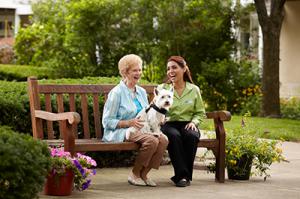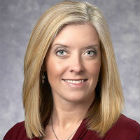Home Care Nutrition Tips: Prevent/Detect Malnutrition in Seniors
Is Your Loved One Getting the Nutrition They Need?
WARREN, NJ, USA, June 29, 2018 /EINPresswire.com/ -- The ‘Academy of Nutrition and Dietetics’ observe March as the ‘National Nutrition Month’ every year. It deals with nutritional issues and their solutions largely but the primary focus is on the elderly who lack proper food. Home care nutrition is a vital aspect of caregiving and one Comfort Keepers of Warren, NJ, places at the core of its service plans.
Malnutrition in seniors of America is as prevalent as it is in the entire world. Despite being the Number 1 country across the globe in terms of power and prestige, statistics don’t make it look too good when you consider the fate of its old and infirm citizens.
33% of every million elderly admitted to hospitals suffer from nutrition-related diseases. Everything boils down to inadequate food intake therefore and can be corrected by taking a few necessary steps pertaining to senior care.
You may be flabbergasted to find out that your elderly father suffers from malnutrition. You are in a shock as you do everything possible to ensure home care nutrition by bringing him to the dining table during meal times and make sure that he takes his medication diligently.
Simply feeding him won’t be enough. You must keep an eye on both the quantity as well as the quality of regimen. The professionals who offer home care solutions for the elderly will be able to educate you about the how’s and why’s of malnutrition that is likely to leave your father frail and weakened. Doctors advise opting for a professional in-home care provider who has both the knowledge as well as the expertise for tackling such a situation.
The in-home caregiver may not have an inkling of the real cause of the problem though. She will, however, keep trying to force feed him at times and end up upsetting him. This is likely to affect him mentally as well. You definitely need to coax him to open up about his problems or allow the caregiver to communicate with him closely.
It might not be as simple as stuffing him with a huge quantity of food either. Geriatric pros believe it to be a combination of physical, psychological as well as social issues that result in severe malnutrition.
Here are some of the common issues that cause a senior citizen to consume less of food thereby lacking the required amount of nutrition.
Going through the details below will help you identify and try and solve it at the earliest in order to ascertain the health of your old and weakened parent.
Health Issues – Elderly individuals lose the will to eat due to dementia at times. Loss of teeth and gum problem may also make them unable to chew properly causing them to refuse food often. Recovering from chronic illness or a feeling of loneliness may also keep them off food thus affecting the nutrition. It would help to question your father and get to the root of the issue. Solving it becomes easy once you know how to minimize the issue.
Dietary Restrictions – If your father suffers from diabetes or has high blood pressure than he is certainly not alone. These happen to be common age-related conditions that need them follow a diet sans salt, sugar and many other nutritive substances that help in nourishing the body. It might be best to get a dietitian prescribe supplements to replenish the diet, therefore.
Social Life – An old person loses touch with his friends because most of them live too far away. Unfortunately, your father is also likely to find many of his old friends dead and gone. He becomes despondent and pines for the lost years when he had enjoyed living life to the fullest. Lack of friends and companions forces him to eat alone, and he often leaves the food uneaten as he has lost his appetite.
Depression is more likely to affect his mood when he lives on his own with no one to talk to. The grief and lack of companionship along with ill health will often make him forgo his food completely. Be sure to ask the live-in caregiver to keep him engaged and happy. Enjoying his favorite activities with a person who takes good care of him is sure to make him happy. He is bound to find life interesting once again.
Malnutrition in seniors is something to worry about.
The foods you eat are important to your health--and never more so than in your senior years. A healthy, balanced diet is crucial to mental and physical wellbeing.
Additionally, many older adults' doctors have recommended a specific diet for their health needs. But following a proper home health care eating plan or a special diet can be difficult for many seniors to keep up on their own.
Facts about Senior Malnutrition
Malnutrition means not getting the vitamins, nutrients, and calories our bodies need from food. Not eating enough of the right kinds of foods can cause many health problems, especially for the elderly.
Unfortunately, according to recent statistics, many seniors are not getting the nutrition they need. A recent article in Forbes stated that one in three patients admitted to a hospital were malnourished. Many of these patients were seniors. The article also found that the cost of malnutrition for older adults is $51.3 billion each year.
Risk Factors for Senior Malnutrition
A review of the risk factors seniors face for malnutrition was published in the journal Advances in Nutrition. The research found that risk factors include:
Cognitive decline due to dementia and Alzheimer's disease
Difficulty walking up and down stairs
Taking more than 10 prescription drugs
Frailty
Functional decline
Loss of hand grip strength
Parkinson's disease
Constipation
Just like your parents worried about your nutrition when you were a child, friends and relatives of older adults often worry about their loved ones' nutritional intake. This is especially important if your loved one has any of these risk factors for senior malnutrition.
Special Dietary Concerns for Seniors
According to the Academy of Nutrition and Dietetics, senior nutrition has some specific concerns. Here's what you need to know:
1. Seniors need more vitamin D and calcium. These two nutrients work together for bone health. According to the National Institutes of Health, adults age 71 and older need 800 International Units (IU) of vitamin D, which is 200 IU more than adults ages 19-70.
Women ages 50 and up and men ages 71 and older need 1,200 mg of calcium per day. Not getting enough calcium and vitamin D can lead to bone loss and osteoporosis. Calcium and vitamin D can come from some foods or from supplements.
2. Vitamin B12 helps to keep cells healthy and prevent anemia. An article published by Harvard Medical School found that people over 50 are at risk of developing a vitamin B12 deficiency.
As we age, it becomes harder for us to absorb vitamin B12 in foods. The recommended daily allowance for adults is 4.2 micrograms. Some examples of B12-containing foods include clams, beef liver, chicken, dairy products, and B12-fortified foods, such as cereals. Vitamin B12 supplements are also available.
3. Seniors need to pay attention to their fiber intake. Fiber is the parts of foods that your body can't digest. So why do you need fiber?
It helps you feel full and helps with digestion. Eating enough fiber can help older adults with constipation. The Institute of Medicine recommends men age 51 and over consume 30 grams of fiber per day.
Women over age 51 should aim for 21 grams. Good sources of fiber include whole grains, fruits, vegetables, and nuts.
4. Everyone needs protein to help their cells function properly. The daily minimum amount of protein per day for adults is currently .8 grams per kilogram of the person's body weight each day.
A 2017 review published in Frontiers in Nutrition found that older adults may need even more protein. Good sources of protein include dairy products, eggs, meat, nuts, beans, quinoa, and soy products.
How Comfort Keepers Can Help
Fortunately, Comfort Keepers of Warren, New Jersey, offers meal preparation as a caregiving service. Your Comfort Keepers caregiver can assist with all the steps involved in making sure your loved one gets healthy, balanced meals--from planning and shopping for groceries to cooking and assisting with eating.
We can also help with special diets for conditions such as diabetes, heart disease, and high blood pressure. Contact us for peace of mind when it comes to your loved one's nutrition.
About Comfort Keepers of Warren, NJ:
Comfort Keepers provides award-winning in-home care for seniors and other adults in need of assistance with daily activities. Their highly trained and dedicated caregivers can help your loved one stay in their home for as long as safely possible—a dream come true for both the seniors and their families. Their goal is to enrich the lives of every treasured client while maintaining client safety, well-being, and comfort as each person continues to live independently despite disease and other age-related conditions.
Their caregivers, referred to as Comfort Keepers®, are carefully selected, screened, and trained to provide professional, compassionate assistance that meets the organization’s high standards. Through a unique approach called Interactive Caregiving™, Comfort Keepers' caregivers build true friendships with their clients in order to fulfill their emotional and social needs.
To find out more about Comfort Keepers of Warren New Jersey’s commitment to excellence, please call (732) 369-3639.
This release was drafted by Results Driven Marketing, LLC: a full-service digital marketing, public relations, advertising and content marketing firm located in Philadelphia, PA
Joe Fuhrman
Comfort Keepers, Warren, NJ
(732) 369-3639
email us here
Legal Disclaimer:
EIN Presswire provides this news content "as is" without warranty of any kind. We do not accept any responsibility or liability for the accuracy, content, images, videos, licenses, completeness, legality, or reliability of the information contained in this article. If you have any complaints or copyright issues related to this article, kindly contact the author above.



